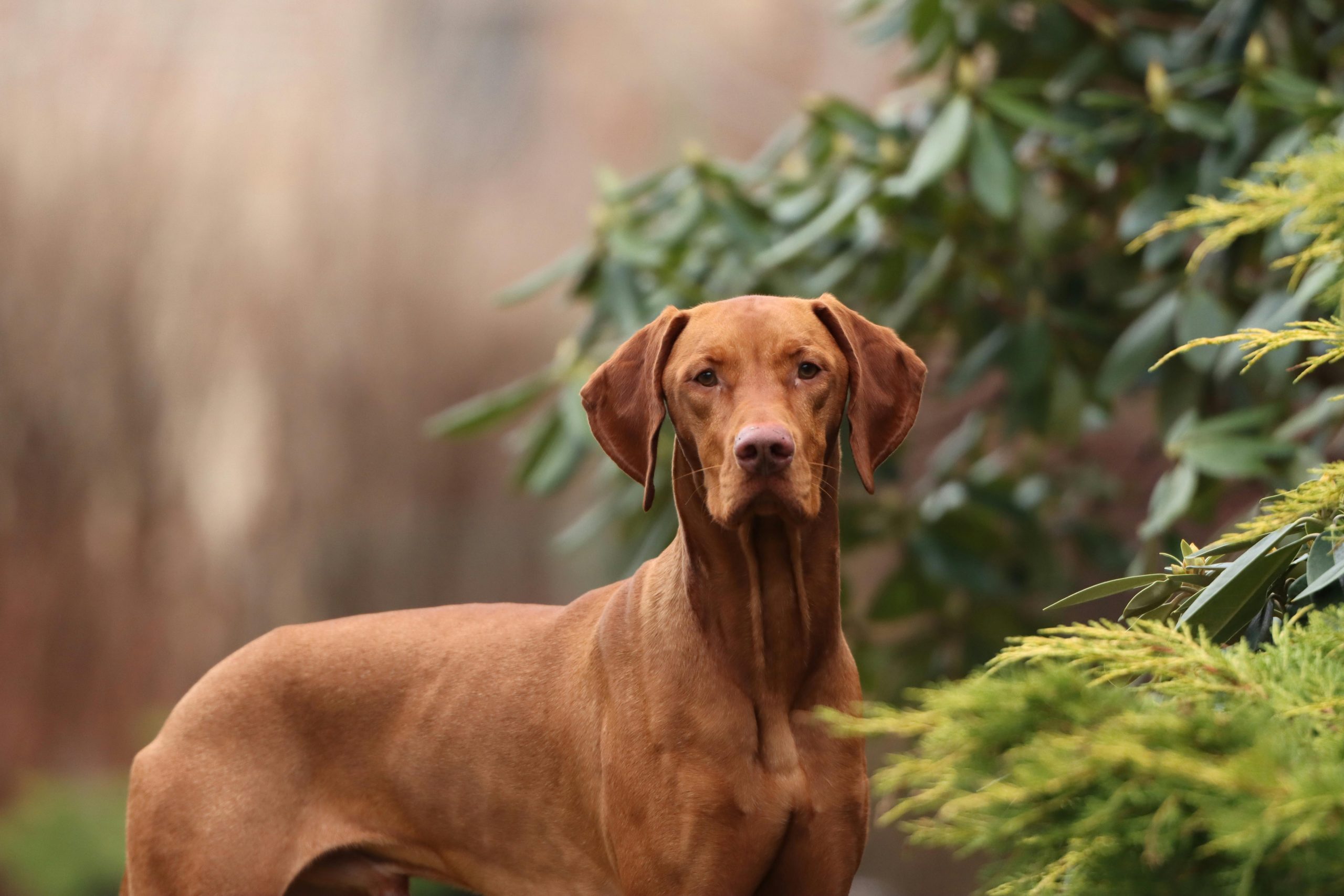Vizslas, originally bred as hunting dogs in Hungary, are well-known for their distinctive rust-colored coat and remarkable affectionate nature. These dogs are not only highly energetic but also possess a set of unique habits that often stand out to their owners. Vizslas are sometimes called “Velcro dogs” due to their desire to be close to their human companions at all times, which is just one of the many unusual behaviors they display. These habits often arise from their historical background, high intelligence, and the intense bond they form with their families. This article delves into seven peculiar habits of Vizslas, exploring the reasons behind these behaviors and how they reflect the breed’s unique personality traits and instinctual lineage. Understanding these habits can help owners provide better care and deeper connections with their Vizsla companions.

1. Shadowing Their Owners
Vizslas are known for their tendency to follow their owners around constantly, a habit that earns them the nickname “Velcro dogs.” This behavior stems from their strong bond with their human family and their bred purpose as companion hunting dogs, where staying close to their human was crucial for the task. This shadowing can be endearing but sometimes overwhelming, as Vizslas might demand attention and dislike being left alone, which can lead to separation anxiety if not managed properly.
2. “Talking” or Vocalizing
Vizslas are quite vocal and are known to “talk” to their owners through a series of moans, groans, and grumbles. This unusual habit is their way of communicating their feelings, needs, or just engaging in conversation with their family. This vocalization is not necessarily barking for attention but more about expressing themselves, showing their sociable and affectionate nature which was essential when coordinating with hunters during tasks.
3. Sleeping Under Covers
An endearing habit of many Vizslas is their preference for sleeping under covers. This behavior is likely linked to their desire for warmth and security, echoing their natural instinct to den. It’s also a way for them to stay close to their owners, even at night. Vizslas often burrow into bed sheets and blankets to create a cozy nest, which can be quite amusing to observe but also signifies their need for comfort and closeness.
4. Extreme Greeting Rituals
Vizslas are known for their enthusiastic greetings, where they display an exuberance that can sometimes be overwhelming. They often greet their owners with jumping, spinning, and running around in circles. This intense greeting ritual reflects their highly sociable nature and their bred role as hunters who excitedly track and retrieve game. It’s important for owners to manage this behavior through training to avoid accidents or overly rambunctious greetings.
5. Retrieving Obsession
Due to their hunting background, Vizslas have a natural obsession with retrieving. This can manifest in constantly bringing objects to their owners, whether toys, sticks, or even household items. This habit is ingrained in their DNA from days spent retrieving game and is a characteristic that requires constructive outlets like games and training to manage properly without turning into destructive behavior.
6. Intense Eye Contact
Vizslas often engage in intense eye contact, staring deeply into their owners’ eyes as a form of communication and bonding. This unusual behavior is part of their empathetic nature, allowing them to read human emotions effectively and respond with empathy. This eye contact can be quite penetrating and is a testament to their deep connection with humans, developed through years of close companionship during hunts.
7. Sunbathing
Vizslas love to sunbathe, and they will often seek out patches of sunlight in the home to lie in. This habit is more than just enjoyment; it’s also a way to absorb warmth for their well-being, as their short coats do not provide much insulation. Sunbathing is a simple pleasure for Vizslas, showcasing their appreciation for comfort and warmth, traits that were beneficial in their native Hungary’s variable climate.

The unusual habits of Vizslas highlight their complex and affectionate nature, stemming from a rich history of close companionship with humans. These behaviors not only make the Vizsla an endearing and entertaining companion but also require understanding and specific care to ensure they lead a balanced and happy life. Owners who embrace these traits will find a loyal, energetic, and deeply connected family member in a Vizsla.
 Toledo, United States.
Toledo, United States.